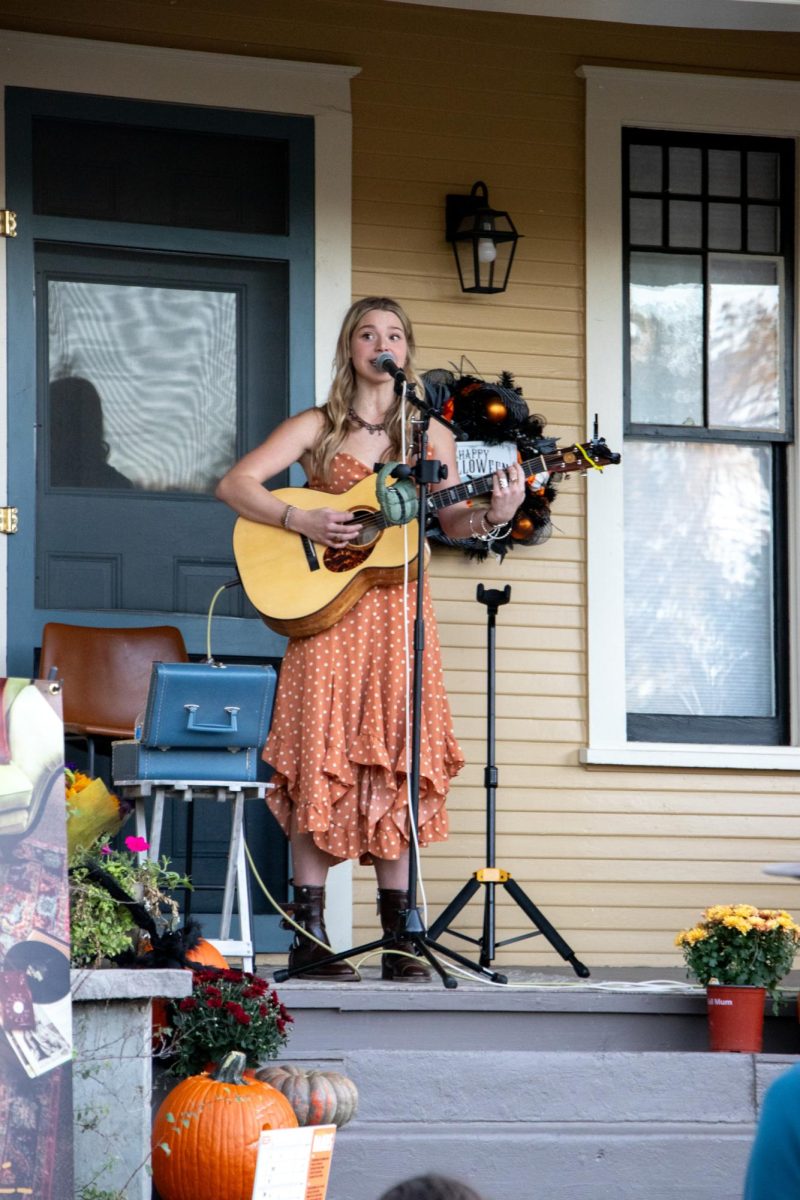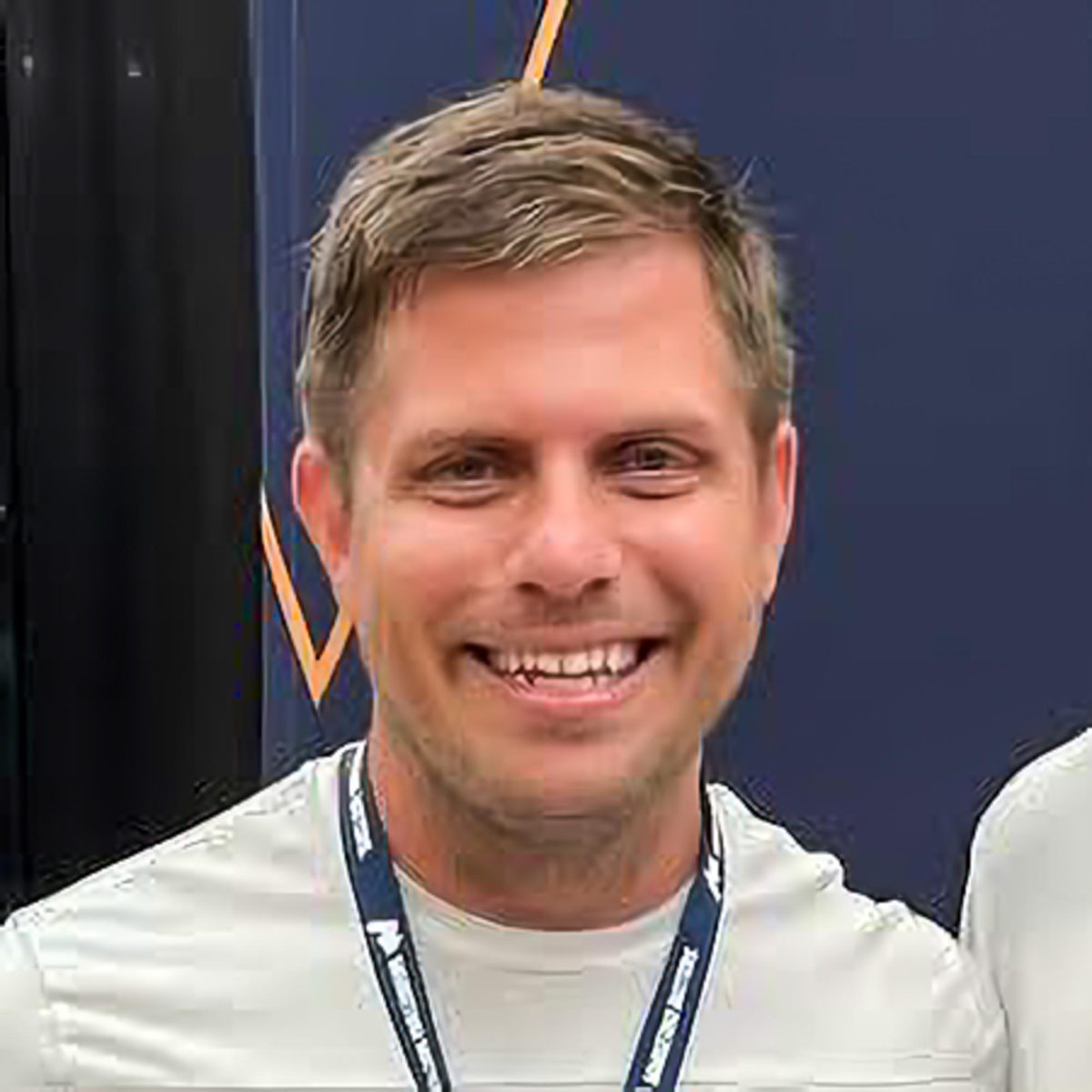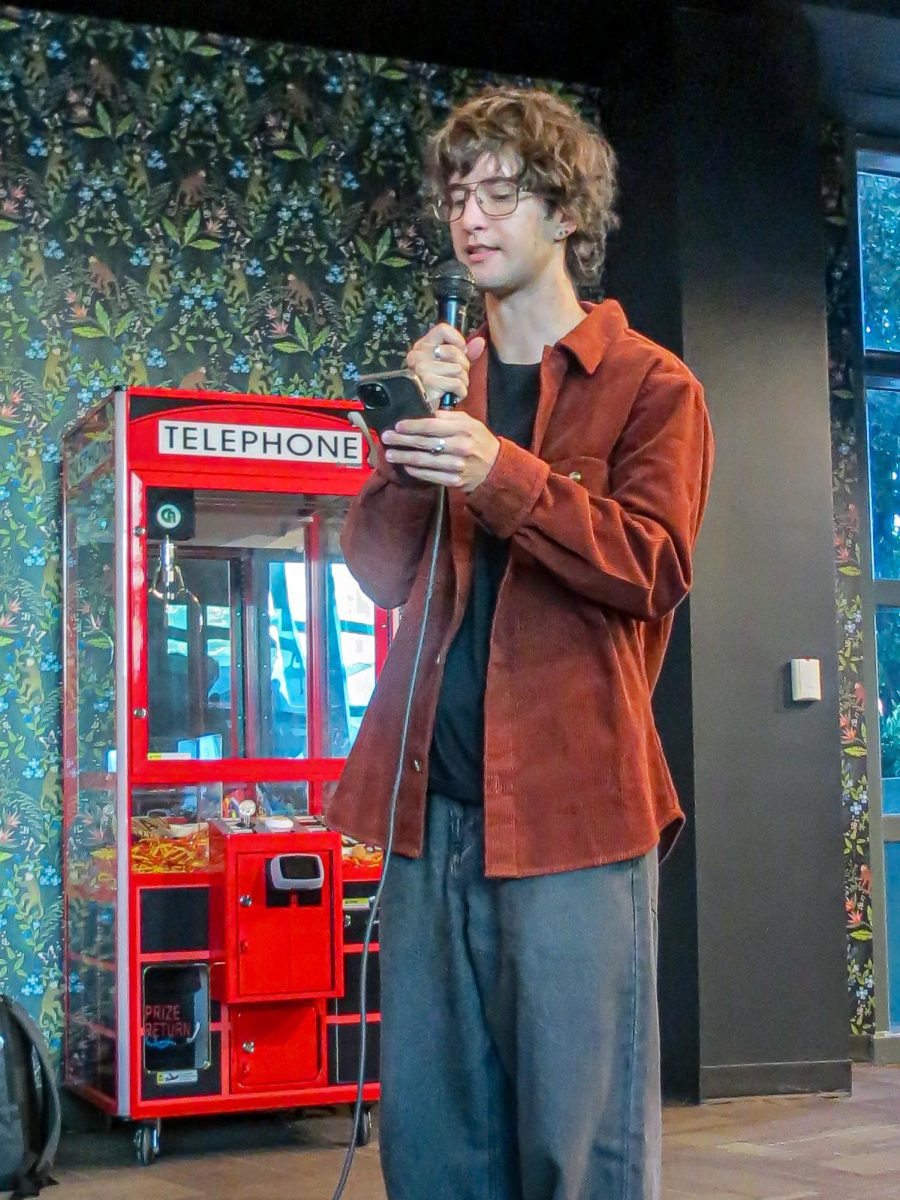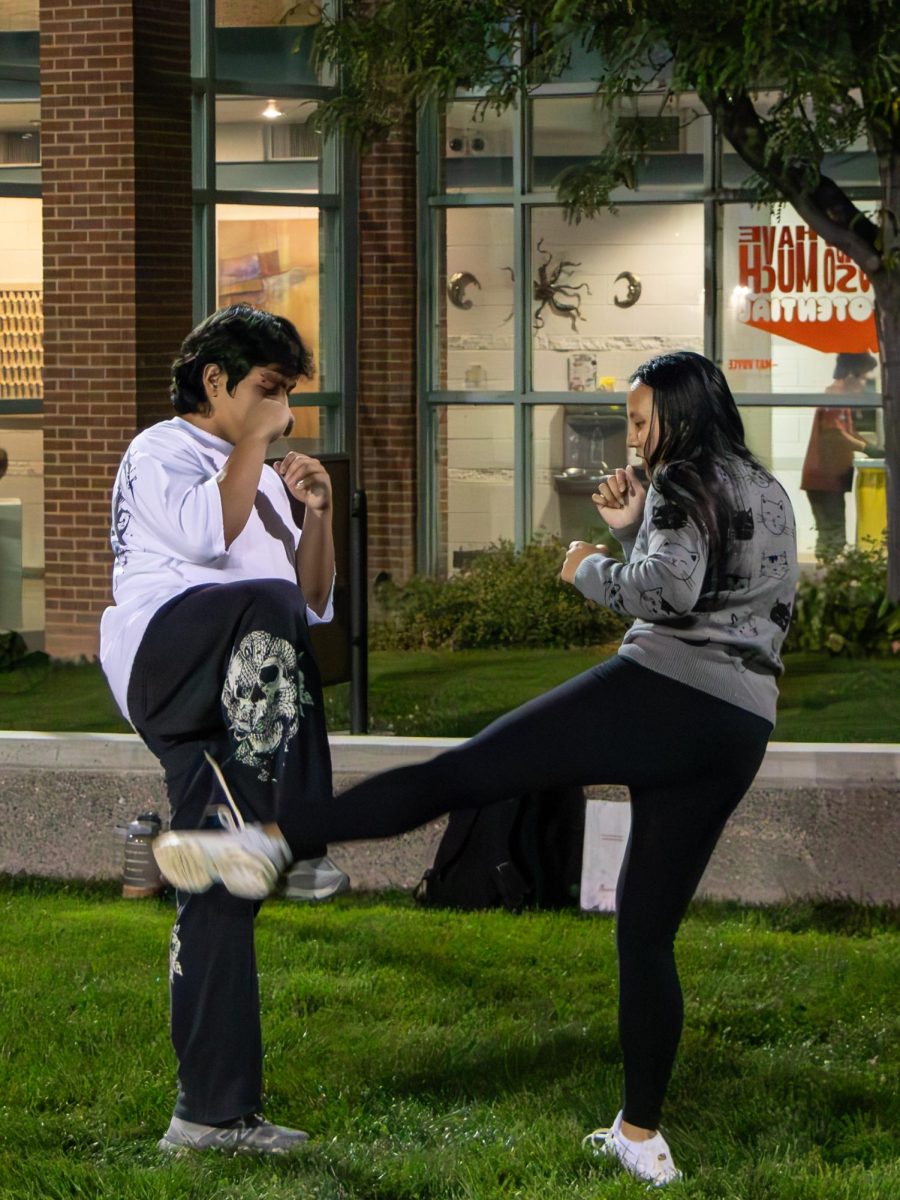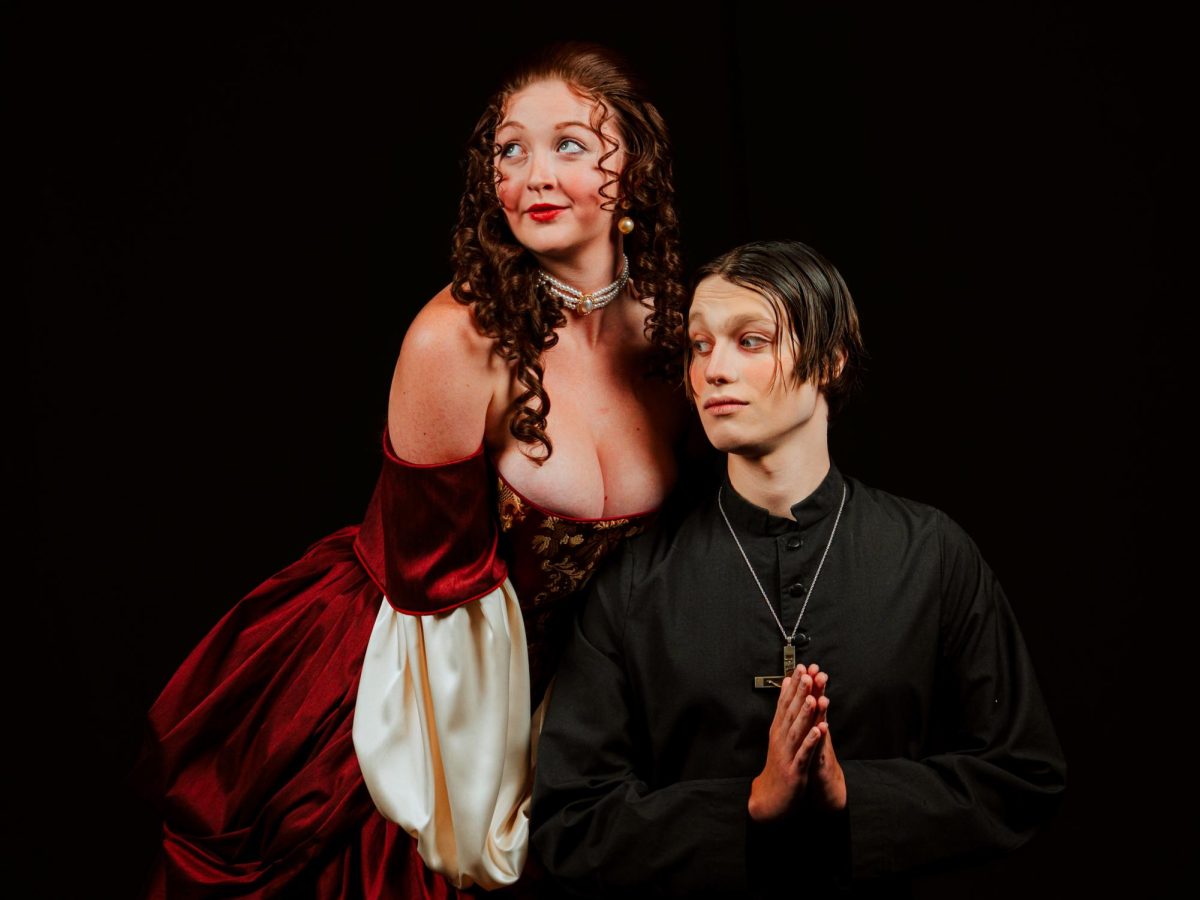Colorado Mesa University’s Theatre program’s last play of the season, “Mr. Burns: A Post-Electric Play,” offers the audience a different kind of performing arts experience.
The play, which takes place in the future and explores the philosophy behind the power of story in human society, introduces technical challenges and creative freedom within the cast and crew.
The production began with a student rush on April 5 and continues until April 14 in the Mesa Experimental Theatre.
The play was born from a discussion between its writers about what binds people together. The storyline of the performance follows a group of survivors after the apocalypse who recall episodes of old television shows, such as “The Simpsons.”
The recollection of the episodes becomes a cultural treasure that is carried down through generations, eventually turning into an almost religious icon.
Joey DeMers, a senior, plays Mr. Burns in the production.
[media-credit name=”Courtesy of Joey DeMers” align=”alignleft” width=”300″] [/media-credit]
[/media-credit]
“It’s definitely one of the more interesting and thought-provoking pieces I’ve been involved with,” DeMers said. “You have to create a new world and a new atmosphere, and hope the audience goes along with it.”
Throughout his career at CMU, he says he has played upbeat, comedic characters. His role in “Mr. Burns” has been a challenging call to create a darker and more sinister character on stage.
“I’m basically playing the devil, which is so interesting to me because I think people are used to me playing peppier characters,” DeMers said. “I’m playing an evil character. So that’s been a challenge: finding the darker side of everything to portray on stage for the audience.”
Chris McKim, the music director for the production, says the show allows for creative freedom with the cast and crew. CMU’s performance has added elements that the students created, such as acapella versions of various pop songs.
“Although there is a script and a score, nothing in this show is as exact as most other shows we deal with… The production has been an act of creation rather than re-creation. It’s a collaborative, creative event that keeps organically growing and growing and growing,” McKim said.

Anna Dworkin, who plays Marta/Lisa in the show, says the futuristic setting also allows for the opportunity to explore different approaches to costume, props, and set design.
“What’s really important about this show is that all the shows we’ve done so far were set back in the past,” Dorvik said. “This is set completely in the future… I don’t remember the last time we did that.”
In most theatre productions, costumes, props, and backgrounds must be historically accurate and represent the time period. However, because the future is unknown, designers and technicians had no restrictions.
“All the people who create the physical world just had a crazy great time with this. There’s all sorts of neat things going on,” McKim said.
A major aspect of the plot is the loss of electricity and subsequent fall of society. As a result, the tech behind the play presented the challenge of creating “natural-looking” light on stage, such as that of a campfire or sunlight.
“Everything had to seem natural — like it wasn’t obvious lighting. That was a really neat challenge,” McKim said. “Our visual and scenic crews have created a really wonderful world to play in.”
The setting of the story is also unique. Jeanine Howe, the play’s director, decided to set the geographical location of the play in the Colorado-Utah area.
“We re-imaged the location to create much more of our experience,” McKim said.
The nontraditional approach of the play has presented challenges for both cast, crew, and faculty, but DeMers says it has helped him grow as an actor.
“It’s good to always challenge yourself. It’s always good to find something new each day and try to overcome it,” DeMers said. “This is show has been teaching me a lot about a side of me that I never thought I’d play, so I’m really grateful for that experience.”
McKim enjoys the philosophical questions that the play raises for audience members. The post-apocalyptic theme is prevalent in current pop culture, and he says it causes the audience to wonder about the meaning people create in entertainment.
“The more I play with this show and the more I think about it, the more amazing it is,” McKim said.
Dworkin says the show has also helped her grow through its strangeness.
“When I was cast in this show, one of the main reasons I was excited for it was because I knew it was weird. It’s not your average show,” Dworkin said. “It’s a good weird, but it’s weird!”
Dworkin, McKim, and DeMers all encourage CMU students to attend the show, as it caters to a different audience than typical theatre.
“Even if they’ve seen plays before, they won’t have seen anything like this,” McKim said. “I can promise that it will be a memorable experience.”
Dworkin agreed that the show will expose audience members to a noteworthy night.
“Whether you like it or not, you’re not going to forget it,” Dworkin said.
“It’s got elements of comedy, but it’s also got elements of horror. It has a bit of everything for everyone,” DeMers said.
“Mr. Burns” will be performed at the Moss Performing Arts Mesa Experimental Theatre at 7:30 p.m. on April 6-7 and April 12-14, and at 2 p.m. on April 8 and 14. Tickets are $21 for adults, $17 for seniors, and $8 for students.



